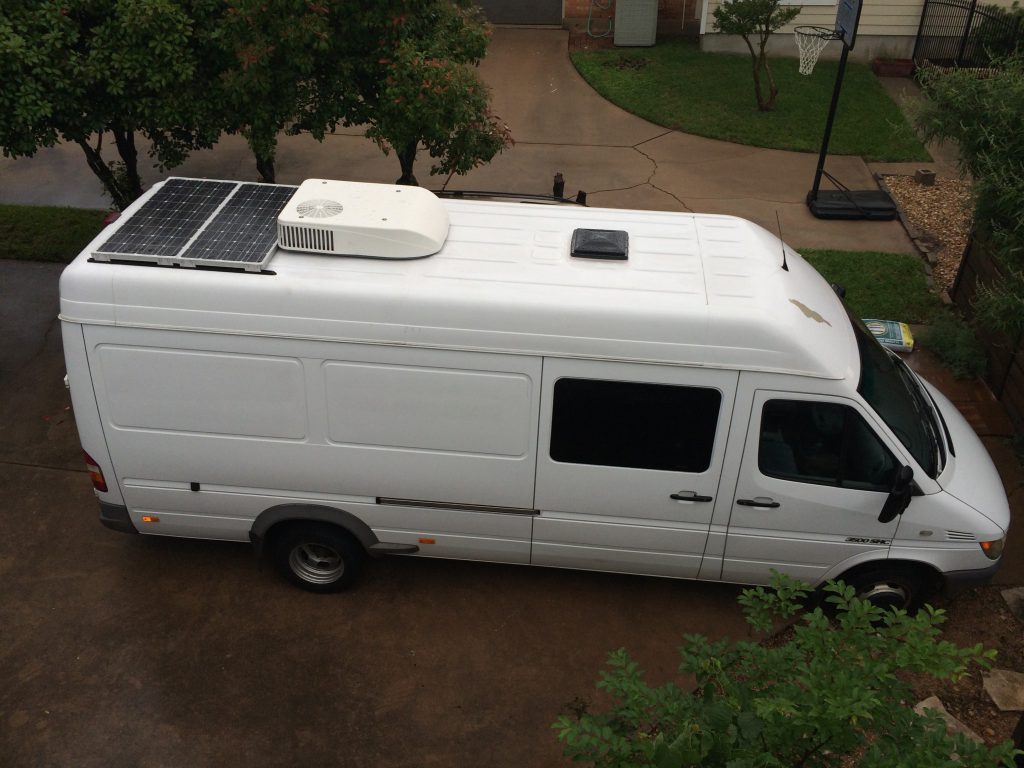
 They don’t call ’em the dog days of summer for nothing.
They don’t call ’em the dog days of summer for nothing.
These sunshiney three months may be the best time of year to grab your travel atlas, throw on your favorite pair of shades, and hit the road. But no matter where you’re headed, chances are you’re going to need some AC if you want to be comfortable when you get there.
Even northerly destinations like Maine and Montana can get pretty darn hot at the peak of summertime. And nothing’s quite as icky as coming back from a long, tiring day of hiking to a stifling motorhome or trailer — to say nothing of trying to get a decent night’s sleep in a puddle of your own sweat. (Trust me, I’m a Floridian. I’ve been there.)
In fact, one of the main reasons many campers upgrade from pitching a tent to hitching up an RV is for the comfort and convenience of an air conditioner. But what exactly are your RV air conditioner options, and how do they work differently than the domestic AC you’re used to?
If you want to stay cool, it’s best to understand a little bit about how this very important piece of machinery works. After all, those handheld fans only cut it for so long.
Here’s everything you didn’t know you need to know about RV air conditioning.
RV AC Unit
Depending on the size, type, model, and age of your unit, chances are pretty good that your camper comes with an AC unit preinstalled. And although there are other options out there — which we’ll get back to in a minute — nine times out of ten, your RV will have a rooftop air conditioner.
A rooftop air conditioning unit is great for RVers because it doesn’t take up any floor space, nor block up one of your windows. Furthermore, they have a low enough profile to avoid adding any serious clearance to your rig’s total. Rooftop units are pretty reliable and can cool off a surprisingly large amount of space in just a short time period.

Depending on the size of your motorhome, you may actually have one or multiple RV AC units. Very large RVs, like 45-foot Class A diesel pushers, may benefit from having two units in order to efficiently cool off the entire floor space at once, especially if you have a master bedroom in the back with a closed door between that space and the living room. It’s important to keep in mind that these, like all AC units, come in a variety of power levels built to cool different living areas. This power level is usually measured in BTUs, short for British Thermal Units. (Fun fact: despite its name, this measurement is actually no longer in common use in the UK!) If you’re in the market to purchase a new RV AC, or a replacement, it’s a good idea to measure out your square footage so you know how many BTUs you need.
However, rooftop AC units do require maintenance from time to time, and like any piece of equipment, they can sometimes fail out of nowhere. It’s important to know how to check your RV’s AC unit for basic diagnostic problems, as well as to know how to scope out a trustworthy mechanic when you really need one. It’s also a good idea to invest in an RV AC cover to protect your investment. Here’s our guide for finding reliable repair professionals, as well as some basic information about how to maintain and take care of your rooftop air conditioning unit.
Camper Air Conditioner
Although rooftop units are undoubtedly the most common and popular RV AC option, they’re not the only one. And depending on the age of your rig and your setup, you may find one of these other AC types will work better in your situation.
Some RVers driving vintage rigs that don’t come with a rooftop unit pre-installed might invest in a ventless, portable indoor AC unit, like the Honeywell MN12CES. These little floor models can be surprisingly powerful and often come with added benefits like dehumidifiers, and they’re usually relatively affordable and don’t require any difficult setup. The drawback, of course, is that the unit will take up some floor space — which, as you know, is at a premium in a camper!
We’ve also seen campers use traditional window AC units, or floor units requiring a window vent. However, these units not take up extra space and look ugly from the exterior, but also release fumes that can be dangerous if not properly ventilated. If you go this route, proceed with caution.
Quietest RV Air Conditioner
One of the main concerns many campers have about any RV air conditioner is the amount of noise it might make. A noisy fan or AC motor can keep you awake at night, or even disturb your nearby campground neighbors.
The answer to the question, “Which RV AC unit is quietest?” will depend on who you ask, and each camper may give you a different answer. That said, it’s a good idea to go with a high-quality, well-respected brand, like Coleman — if only because you’re more likely to get decent customer service if you do run into any noise reduction issues with your RV air conditioner.
If your RV air conditioner is making noise, be sure to check for basic mechanical problems, like a loose vent or screen. Click here to read more basics on RV air conditioner repair and maintenance.
Best Generator for RV Air Conditioner
If you’re not going to be hooked up to shore power, you’ll need a generator in order to run your AC. As Gone with the Wynns discovered, it is technically possible to run your AC off solar power… but it’s certainly not sustainable!
However, your RV’s air conditioner is a powerful piece of equipment, and it draws a lot more power than, say, a hair dryer. So make sure the generator you have on board will create enough power to run your AC properly.
Phew! That’s a whole lot of information about RV air conditioners, but don’t sweat it. If all goes well, you’ll stay cool out there all summer long!
This post may contain affiliate links.






